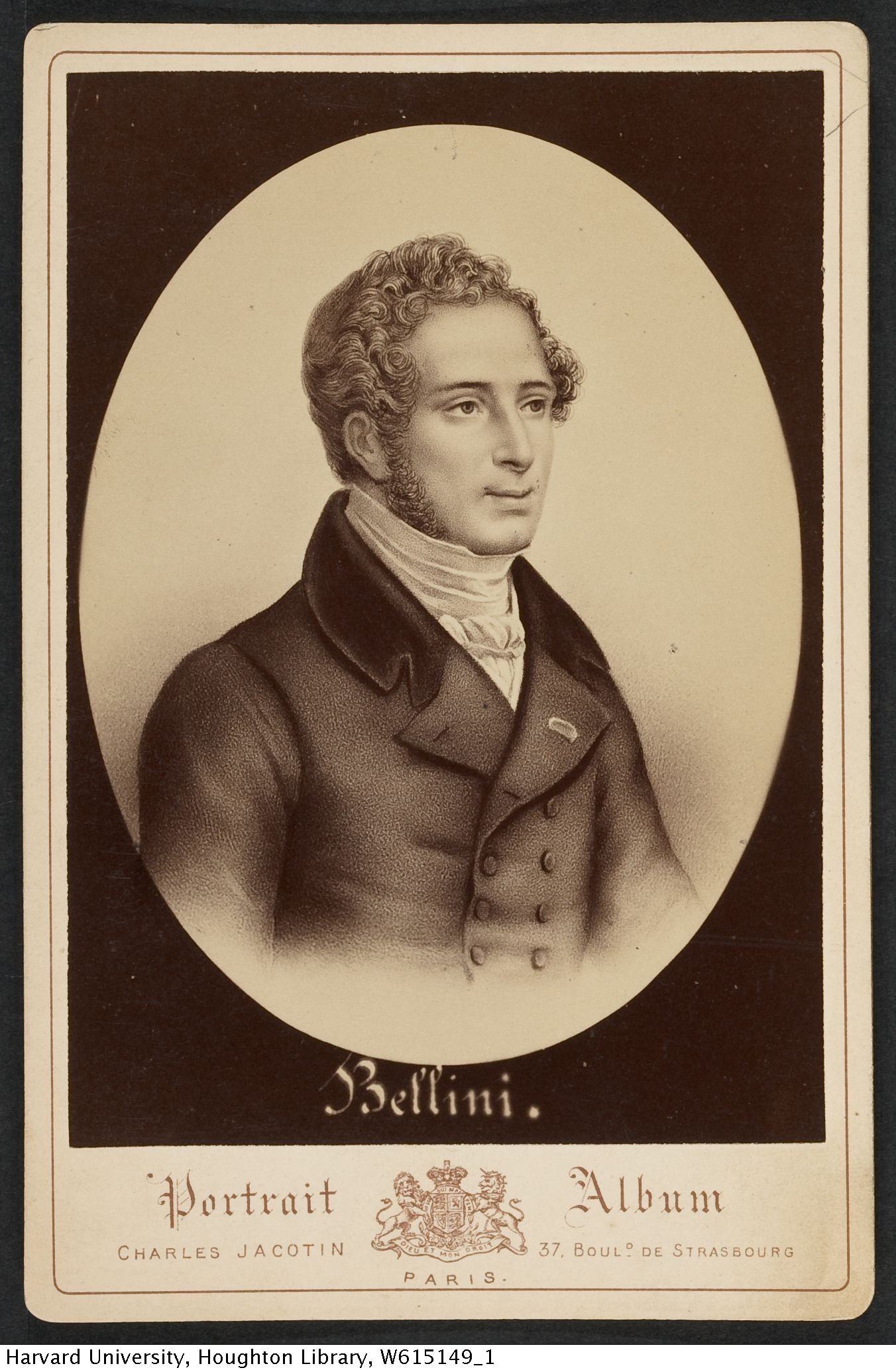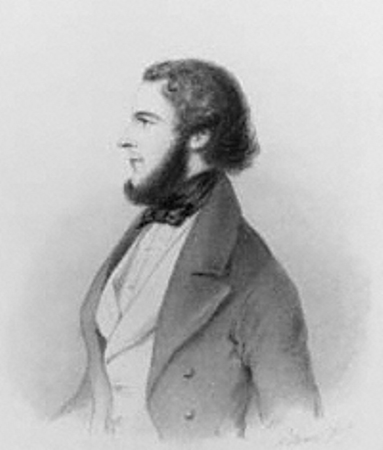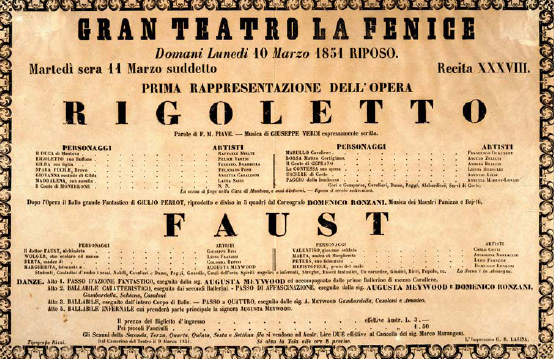|
Antonio Cotogni
Antonio "Toto" Cotogni (; 1 August 1831 – 15 October 1918) was an Italian baritone of the first magnitude. Regarded internationally as being one of the greatest male opera singers of the 19th century, he was particularly admired by the composer Giuseppe Verdi. Cotogni forged an important second career as a singing teacher after his retirement from the stage in 1894. Early years and education Antonio Cotogni was born in Rome to Agata Fazzini and Raffaele Cotogni, who managed a small majolica plant. He had four siblings: sister Giuditta (who remained unmarried and lived in the family household); brothers Francesco, Andrea (who owned a meat packing business), and Gaspare (later mayor of Melara). After some initial studies at the Hospice of San Michele, where he was a student of Ludovico Luccesi. He studied music theory at Santa Maria Maggiore under Fontemaggi. Soon after, he began working with Achille Faldi on the study of singing itself. Under his guidance, Cotogni made h ... [...More Info...] [...Related Items...] OR: [Wikipedia] [Google] [Baidu] |
Rome
, established_title = Founded , established_date = 753 BC , founder = King Romulus (legendary) , image_map = Map of comune of Rome (metropolitan city of Capital Rome, region Lazio, Italy).svg , map_caption = The territory of the ''comune'' (''Roma Capitale'', in red) inside the Metropolitan City of Rome (''Città Metropolitana di Roma'', in yellow). The white spot in the centre is Vatican City. , pushpin_map = Italy#Europe , pushpin_map_caption = Location within Italy##Location within Europe , pushpin_relief = yes , coordinates = , coor_pinpoint = , subdivision_type = Country , subdivision_name = Italy , subdivision_type2 = Region , subdivision_name2 = Lazio , subdivision_type3 = Metropolitan city , subdivision_name3 = Rome Capital , government_footnotes= , government_type = Strong Mayor–Council , leader_title2 = Legislature , leader_name2 = Capitoline Assemb ... [...More Info...] [...Related Items...] OR: [Wikipedia] [Google] [Baidu] |
Teatro Pallacorda
Teatro may refer to: * Theatre * Teatro (band) Teatro, Italian for "theatre", is a vocal group signed to the Sony BMG music label. The members of Teatro are Jeremiah James, Andrew Alexander, Simon Bailey and Stephen Rahman-Hughes. Band members Jeremiah James Jeremiah James was born in upst ..., musical act signed to Sony BMG * ''Teatro'' (Willie Nelson album), 1998 * ''Teatro'' (Draco Rosa album), 2008 {{disambiguation ... [...More Info...] [...Related Items...] OR: [Wikipedia] [Google] [Baidu] |
La Traviata
''La traviata'' (; ''The Fallen Woman'') is an opera in three acts by Giuseppe Verdi set to an Italian libretto by Francesco Maria Piave. It is based on ''La Dame aux camélias'' (1852), a play by Alexandre Dumas ''fils'' adapted from his own 1848 novel. The opera was originally titled ''Violetta'', after the main character. It was first performed on 6 March 1853 at La Fenice opera house in Venice. Piave and Verdi wanted to follow Dumas in giving the opera a contemporary setting, but the authorities at La Fenice insisted that it be set in the past, "c. 1700". It was not until the 1880s that the composer's and librettist's original wishes were carried out and " realistic" productions were staged. ''La traviata'' has become immensely popular and is among the most frequently performed of all operas. Composition history For Verdi, the years 1851 to 1853 were filled with operatic activity. First, he had agreed with the librettist Salvadore Cammarano on a subject for what would ... [...More Info...] [...Related Items...] OR: [Wikipedia] [Google] [Baidu] |
Turin
Turin ( , Piedmontese language, Piedmontese: ; it, Torino ) is a city and an important business and cultural centre in Northern Italy. It is the capital city of Piedmont and of the Metropolitan City of Turin, and was the first Italian capital from 1861 to 1865. The city is mainly on the western bank of the Po (river), Po River, below its Susa Valley, and is surrounded by the western Alps, Alpine arch and Superga Hill. The population of the city proper is 847,287 (31 January 2022) while the population of the urban area is estimated by Larger Urban Zones, Eurostat to be 1.7 million inhabitants. The Turin metropolitan area is estimated by the Organisation for Economic Co-operation and Development, OECD to have a population of 2.2 million. The city used to be a major European political centre. From 1563, it was the capital of the Duchy of Savoy, then of the Kingdom of Sardinia ruled by the House of Savoy, and the first capital of the Kingdom of Italy from 1861 to 1865. T ... [...More Info...] [...Related Items...] OR: [Wikipedia] [Google] [Baidu] |
Teatro Argentina
The Teatro Argentina (directly translating to "Theatre Argentina") is an opera house and Theater (structure), theatre located in Largo di Torre Argentina, a square in Rome, Italy. One of the oldest theatres in Rome, it was constructed in 1731 and inaugurated on 31 January 1732Plantamura, 10 with ''Berenice'' by Domenico Sarro. It is built over part of the curia section of the Theatre of Pompey. This curia was the location of the assassination of Julius Caesar. History The theatre was commissioned by the Sforza-Cesarini family and designed by the architect Gerolamo Theodoli, with the auditorium laid out in the traditional horseshoe shape. Duke Francesco Sforza-Cesarini, who ran the Argentina Theatre from 1807 to 1815, was a "theatre fanatic" who continued until his death to run up debts. Rossini's ''The Barber of Seville'' was given its premiere here on 20 February 1816, just after Duke Francesco's death and, in the 19th century, the premieres of many notable operas took place in ... [...More Info...] [...Related Items...] OR: [Wikipedia] [Google] [Baidu] |
Gemma Di Vergy
''Gemma di Vergy'' is an 1834 ''tragedia lirica'' (tragic opera) in two acts by Gaetano Donizetti from a libretto by Giovanni Emanuele Bidera. It is based on the tragedy ''Charles VII chez ses grands vassaux'' ''(Charles VII and His Chief Vassals)'' (1831) by Alexandre Dumas, père, Alexandre Dumas ''père'',Ashbrook & Hibberd 2001, p. 236. which was later to become the subject of the opera ''The Saracen (opera), The Saracen'' by the Russian composer César Cui. The heroine is the childless wife of the Count of Vergy, and the plot deals with her jealousy and grief as her husband arranges an annulment of their marriage in preparation for the arrival of his new bride, Ida, and her despair following the murder of her husband by a slave, Tamas, who is secretly in love with her. ''Gemma di Vergy'' was first performed on 26 December 1834 at the La Scala, Milan. The leading role was taken by the Italy, Italian soprano Giuseppina Ronzi de Begnis, Donizetti's favourite prima donna at the ... [...More Info...] [...Related Items...] OR: [Wikipedia] [Google] [Baidu] |
Lucia Di Lammermoor
''Lucia di Lammermoor'' () is a (tragic opera) in three acts by Italian composer Gaetano Donizetti. Salvadore Cammarano wrote the Italian-language libretto loosely based upon Sir Walter Scott's 1819 historical novel ''The Bride of Lammermoor''. Donizetti wrote ''Lucia di Lammermoor'' in 1835, when he was reaching the peak of his reputation as an opera composer. Gioachino Rossini had recently retired and Vincenzo Bellini had died shortly before the premiere of ''Lucia'' leaving Donizetti as "the sole reigning genius of Italian opera".Mackerras, p. 29 Not only were conditions ripe for Donizetti's success as a composer, but there was also a widespread interest in the history and culture of Scotland. The perceived romance of its violent wars and feuds, as well as its folklore and mythology, intrigued 19th century readers and audiences. Sir Walter Scott dramatized these elements in his novel ''The Bride of Lammermoor'', which inspired several musical works including ''Lucia''.Mackerra ... [...More Info...] [...Related Items...] OR: [Wikipedia] [Google] [Baidu] |
I Puritani
' (''The Puritans'') is an 1835 opera by Vincenzo Bellini. It was originally written in two acts and later changed to three acts on the advice of Gioachino Rossini, with whom the young composer had become friends. The music was set to a libretto by Count Carlo Pepoli, an Italian émigré poet whom Bellini had met at a salon run by the exile Princess Belgiojoso, which became a meeting place for many Italian revolutionaries. The opera is based on ''Têtes Rondes et Cavaliers'' (''Roundheads and Cavaliers''), a historical play written by Jacques-François Ancelot and Joseph Xavier Saintine and set in the English Civil War, which some sources state was based on Walter Scott's 1816 novel ''Old Mortality,'' while others state that there is no connection. When Bellini arrived in Paris in mid-August 1833, he had intended to stay only about three weeks, the main aim being to continue the negotiations with the Paris Opéra which had begun on his way to London a few months earlier. Howe ... [...More Info...] [...Related Items...] OR: [Wikipedia] [Google] [Baidu] |
Lucrezia Borgia (opera)
''Lucrezia Borgia'' is a melodramatic opera in a prologue and two acts by Gaetano Donizetti. Felice Romani wrote the Italian libretto after the play ''Lucrezia Borgia'' by Victor Hugo, in its turn after the legend of Lucrezia Borgia. ''Lucrezia Borgia'' was first performed on 26 December 1833 at La Scala, Milan. Performance history 19th century The first London production was at Her Majesty's Theatre on 6 June 1839 with Giulia Grisi and Mario.Ashbrook and Hibberd, p. 234 When the opera was staged in Paris (Théâtre des Italiens) in 1840, Victor Hugo obtained an injunction against further productions within the domain of French copyright law. The libretto was then rewritten and retitled ''La rinegata'', with the Italian characters changed to Turks, and the performances were resumed. The first English-language production was in London on 30 December 1843. The English tenor Sims Reeves was a noted Gennaro. ''Lucrezia'' was first presented in New Orleans on 27 April 1843 and then ... [...More Info...] [...Related Items...] OR: [Wikipedia] [Google] [Baidu] |
I Masnadieri
''I masnadieri'' (''The Bandits'' or ''The Robbers'') is an opera in four acts by Giuseppe Verdi to an Italian libretto by Andrea Maffei, based on the play ''Die Räuber'' by Friedrich von Schiller. As Verdi became more successful in Italy, he began to receive offers from other opera houses outside the country. The London impresario Benjamin Lumley had presented ''Ernani'' in 1845 and, as a result of its success, commissioned an opera from the composer which became ''I masnadieri''. It was given its first performance at Her Majesty's Theatre on 22 July 1847 with Verdi conducting the first two performances. While reasonably successful there and in Italy up to the mid-1860s, the opera disappeared for about 90 years until revived in 1951. It has been revived from time to time in the 21st century. Composition history In 1842 Lumley took over the management of Her Majesty's Theatre, the traditional home of Italian opera in London. Three years later Verdi's ''Ernani'' received its f ... [...More Info...] [...Related Items...] OR: [Wikipedia] [Google] [Baidu] |
Rigoletto
''Rigoletto'' is an opera in three acts by Giuseppe Verdi. The Italian libretto was written by Francesco Maria Piave based on the 1832 play ''Le roi s'amuse'' by Victor Hugo. Despite serious initial problems with the Austrian censors who had control over northern Italian theatres at the time, the opera had a triumphant premiere at La Fenice in Venice on 11 March 1851. The work, Verdi's sixteenth in the genre, is widely considered to be the first of the operatic masterpieces of Verdi's middle-to-late career. Its tragic story revolves around the licentious Duchy of Mantua, Duke of Mantua, his hunch-backed court jester Rigoletto, and Rigoletto's daughter Gilda. The opera's original title, ''La maledizione'' (The Curse), refers to a curse placed on both the Duke and Rigoletto by a courtier whose daughter the Duke has seduced with Rigoletto's encouragement. The curse comes to fruition when Gilda falls in love with the Duke and sacrifices her life to save him from the assassin hired by ... [...More Info...] [...Related Items...] OR: [Wikipedia] [Google] [Baidu] |





